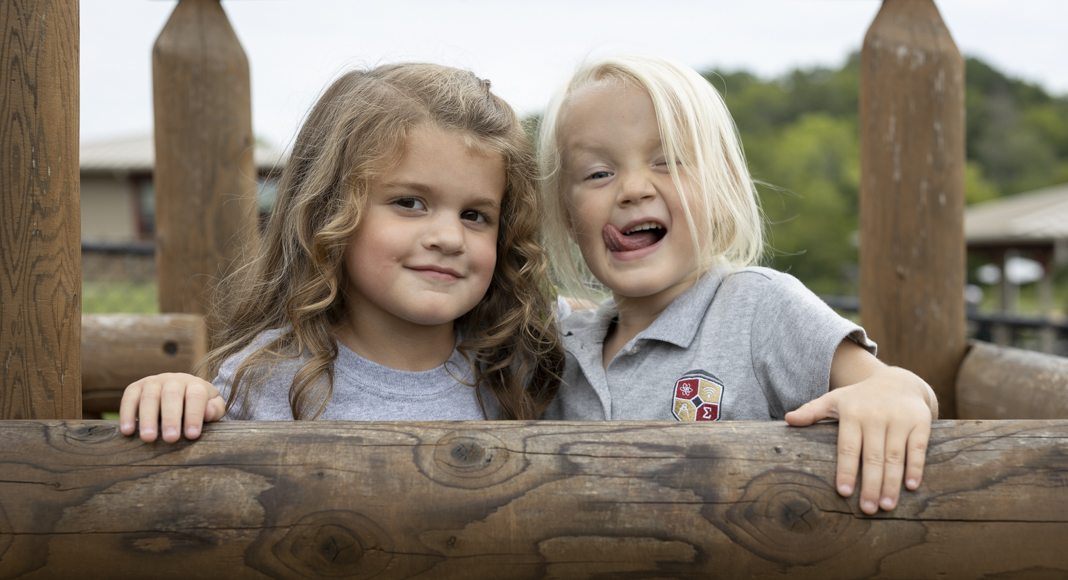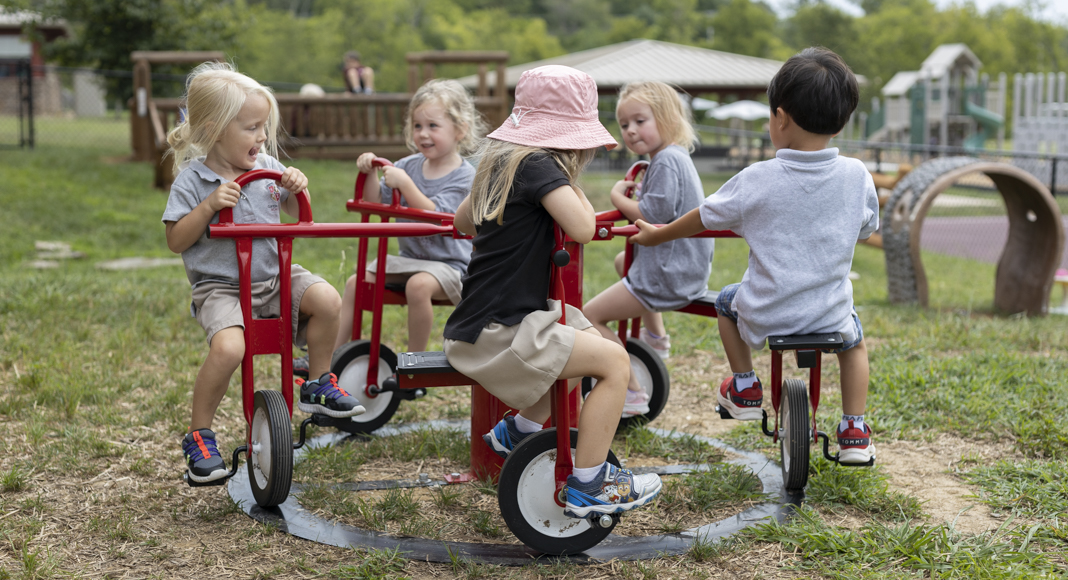Emotional intelligence is getting more attention these days. It’s a way to conceptualize and develop the skills that help people understand themselves and connect with others. I’ve heard it said that every opportunity lies on the other side of a person. Emotional intelligence may be the most important skill for children to learn; it can facilitate new relationships and new opportunities. So, how can parents develop their child’s emotional intelligence?
Here are three tips for raising emotionally intelligent children:
Label emotions
Use relational vocabulary
Make relational work a habit
 1) Label Emotions
1) Label Emotions
Emotions play an enormous role in people’s lives. We’d like to think we’re rational and make choices for thoughtful reasons. But, in truth, we often use reason to justify our emotional decisions. The first step in raising emotionally intelligent children is to help them identify their emotions. When your child is feeling something strongly, get on their level and help them learn the word for this feeling. Try using phrases like, “I see you’re feeling angry, why don’t we take some deep breaths and then try to solve this problem together?” Customize your suggestions based on the needs of your child.
Here are some emotions to look for and help them label: scared, frustrated, excited, surprised, and angry. Starting with even this simple list is a game-changer for helping children understand their powerful feelings. For adolescents and adults, this list of 135 words may be helpful. But, don’t get bogged down. It’s easier for you—and effective for them—if you keep it simple.
Helping your child learn to recognize and label their emotions will unlock incredible lifelong skills. They will be more equipped to manage their emotions, control impulsive behaviors, and empathize with others. It’s well worth the effort.
2) Use Relational Vocabulary
Emotional intelligence is the skill for understanding yourself and connecting with others, and skills are teachable. That’s great news! It means your child isn’t stuck in a box when it comes to building healthy relationships. There are specific skills you can help them develop as they relate to others. In fact, you’re already doing this. It may look like intervening on the playground when your child takes a toy from another child. Or, it may look like helping older children know the line between friendly joking and using belittling put-downs.
Just as having a list of emotions helps you coach your child through big feelings, a detailed relational vocabulary empowers you to guide them as they relate to others. For example, when your child takes a toy without asking, you can talk with them about being patient and caring for the feelings of others. Elaborate on these skills by defining them and helping your child understand better choices for healthy relationships.
 I find two relational vocabulary lists particularly compelling: the 5 Lifelong Guidelines and the 19 LIFESKILLS. These were developed for education and offer both detail and simplicity.
I find two relational vocabulary lists particularly compelling: the 5 Lifelong Guidelines and the 19 LIFESKILLS. These were developed for education and offer both detail and simplicity.
The 5 Lifelong Guidelines
- trustworthiness: to act in a manner that makes one worthy of trust and confidence
- truthfulness: to be honest about things and feelings with oneself and others
- active listening: to listen with the intention of understanding what the speaker intends to communicate
- no put-downs: to never use words, actions, or body language that degrade, humiliate, or dishonor others
- personal best: to do one’s best given the circumstances and available resources
The 19 LIFESKILLS
- caring: to feel and show concern for others
- common sense: to use good judgment
- cooperation: to work together toward a common goal or purpose
- courage: to act according to one’s beliefs despite fear of adverse consequences
- creativity: to generate ideas; to create something original or redesign through imaginative skill
- curiosity: a desire to investigate and seek understanding of one’s world
- effort: to do your best
- flexibility: to be willing to alter plans when necessary
- friendship: to make and keep a friend through mutual trust and caring
- initiative: to do something of one’s own free will, because it needs to be done
- integrity: to act according to a sense of what’s right and wrong
- organization: to plan, arrange, and implement in an orderly way; to keep things orderly and ready to use
- patience: to wait calmly for someone or something
- perseverance: to keep at it
- pride: satisfaction from doing one’s personal best
- problem-solving: to create solutions to difficult situations and everyday problems
- resourcefulness: to respond to challenges and opportunities in innovative and creative ways
- responsibility: to respond when appropriate; to be accountable for one’s actions
- sense of humor: to laugh and be playful without harming others
Think of these as skills your child can use in their relationships. Then, work to be their relational coach—finding moments to encourage them when they get an interaction right and to correct them when there’s a skill they need to work on.
3) Make Relational Work A Habit
Developing emotional intelligence takes time and intentionality. As a parent, you’re just one person (or two people) and there’s a limit to how often you’re able to observe and coach your child. The best way to cement the skills of emotional intelligence is in a community. This can be a team sport, a church, or a school. The key is to find peers for your child, a goal to work toward, and other adults to help coach their relational growth.
Since children spend most of their time at school, school is an ideal environment to develop emotional intelligence. Many teachers do emotional intelligence work in the classroom. They call it Social and Emotional Learning (SEL). It’s a recognition that social skills, emotional intelligence, and character play an enormous role in careers and in life.
 One Metro Knoxville school, in particular, is built around SEL: Clayton-Bradley Academy. Knowing that the workplace is almost always centered around projects and collaboration, they have designed a preschool through twelfth-grade curriculum to develop emotional intelligence. They use the Lifelong Guidelines and LIFESKILLS in every classroom—going so far as to grade students on how they are using each of these skills. They also connect classroom content to positive emotions through teacher relationships and creative lessons.
One Metro Knoxville school, in particular, is built around SEL: Clayton-Bradley Academy. Knowing that the workplace is almost always centered around projects and collaboration, they have designed a preschool through twelfth-grade curriculum to develop emotional intelligence. They use the Lifelong Guidelines and LIFESKILLS in every classroom—going so far as to grade students on how they are using each of these skills. They also connect classroom content to positive emotions through teacher relationships and creative lessons.
A great school is incredibly helpful, but it’s not the only way to reinforce emotional intelligence. The most important factor is having a parent who understands emotions and relationships, and who consistently teaches these skills to their child.



















